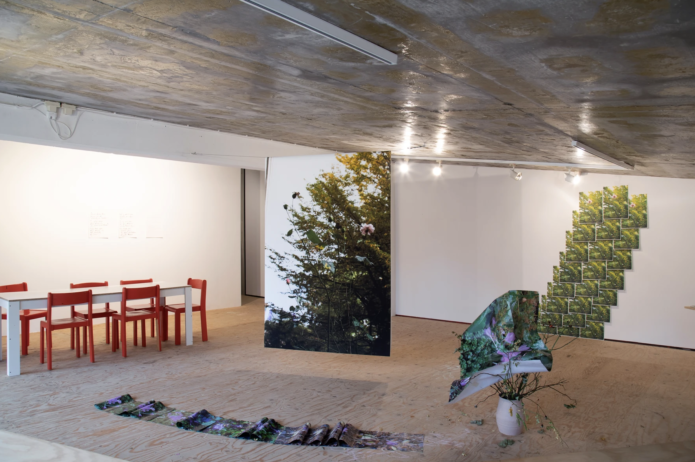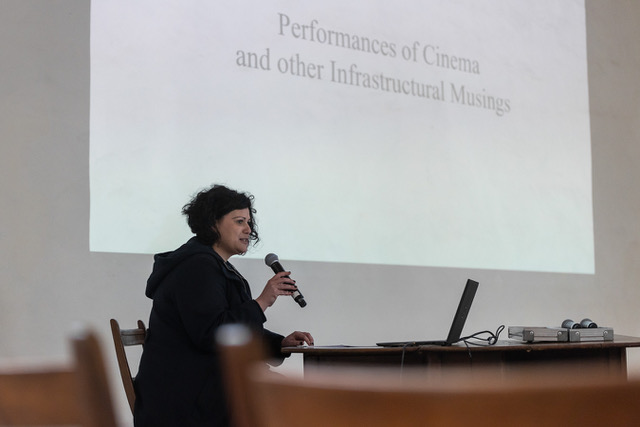 'Come Closer' archive session at Oude Kerk, Amsterdam (2022). Photo: Maarten Nauw
'Come Closer' archive session at Oude Kerk, Amsterdam (2022). Photo: Maarten Nauw
Megan Hoetger
Megan Hoetger is a performance, film, and media historian, a curator, convener, exhibition-maker and pedagogue. Hoetger holds a PhD in Performance Studies from the University of California, Berkeley with specialisations in Critical Theory and Film & Media Studies. Since 2025, she is Lead Lecturer in Performance Theory and Dramaturgical Practice in the MA Performance Practices Programme at ArtEZ University of the Arts, Arnhem. As part of her redesign of the programme’s curriculum in performance theory, Hoetger has devised “The Political Contours of Performing. Representing Bodies, Circulating Performance, Resisting Infrastructures,” a three-part seminar series mapping the matrixes of imaginaries and material conditions that makers enter into when they enter the field of performance research and performance-making. Also since 2025, she is Head of Production for the Palestinian Film Festival Amsterdam.
Hoetger has realised projects, co-led workshops, and presented her research on performance, experimental film and media, and archival practice, within a range of cultural and pedagogical settings, including: The Lab, San Francisco (2018); Berkeley Art Museum & Pacific Film Archive, Berkeley (2018); KASK Cinema, Ghent (2019); Haus der Kulturen der Welt, Berlin (2019-2022); If I Can’t Dance, Amsterdam (2020-2024); Centre Pompidou, Paris (2021); Oude Kerk, Amsterdam (2022); iKSV: Istanbul Foundation for Culture and Arts, Istanbul (2022); Staatliche Kunstsammlungen, Dresden (2019-2023); de Appel, Amsterdam (2023); the VALIE EXPORT Center, Linz (2023); Łaźnia Centre for Contemporary Art, Gdańsk (2024); City Galley, Prague (2025); and Loods 6, Amsterdam (2025).
Alongside her institutional and independent engagements as a curator, convener and speaker, Hoetger also moves in collaborative research configurations. As a founding member of Zone Collective (established 2016), she works together with cultural practitioner Kirila Cvetkovska on a variety of projects investigating the historiographic conventions for understanding cultural production in geopolitical sites marked by their grey zone ‘border status(es),’ including: the 2021 participatory research exhibition Shadow Zones: Experimental Cinema History in Yugoslavia; or, a Cinema and a History Made and Unmade by Maps, which spanned installation, outdoor screening program, and performance-lecture series; the 2022 performative workshop Zoning Play Complex, which was the culmination of work undertaken as part of 2021-2022 Fellowship for Situated Practice at BAK — basis voor actuele kunst, Utrecht; and the 2024 artists’ book Studies in Character, which brings together documentation from the group’s experiments in storytelling since 2020. Elsewhere, as a founding member of Disco Comradeship (established 2019), Hoetger thinks together with art historian Carlos Kong on the relations between film, urban space, club cultures and political conceptions of comradeship under (post-)socialist conditions. From 2021–22 Hoetger and Kong co-lead the workshop Archiving Club Cultures at the House of World Cultures (HKW), Berlin resulting in the experimental essay ‘Reassembling East German Nightlife: Scores for Curating from Elusive Archives’ for the 2022 glossary Archives on Show, edited by Beatrice van Bismarck. Also in 2022, Hoetger worked with the HKW to realise the program Active Archives, Performing Social Realities in Archival Contexts for the opening of the institution’s exhibition The Whole Live. Archives & Imaginaries. Following from that programme, she reflected on her curatorial research practice in the 2025 essay, “Active Archives. On Performance Curatorial Research and Historiographic Method,” which was commissioned for a new edition of the Routledge Companion to Performance Art.
Other writings have appeared in Performance Art Journal, Discourse: Journal for Theoretical Studies in Media and Culture, Theatre Journal, and octopus notes, as well as in edited volumes including Relational Acts: Performance Practices and Media of Documentation (de Gruyter, 2025) and In and Out of Sight: Art and the Dynamics of Circulation and Suppression (Bloomsbury, 2021). She was managing editor for the award-winning book, Colonial Toxicity: Rehearsing French Radioactive Architecture and Landscape in the Sahara (2024), co-published by Framer Framed, If Can’t Dance, and edition fink. The publication is authored by Samia Henni, and compiles years of the architectural historian and exhibition-maker’s archival research into a nearly six-hundred-page visual catalogue.
Exposities
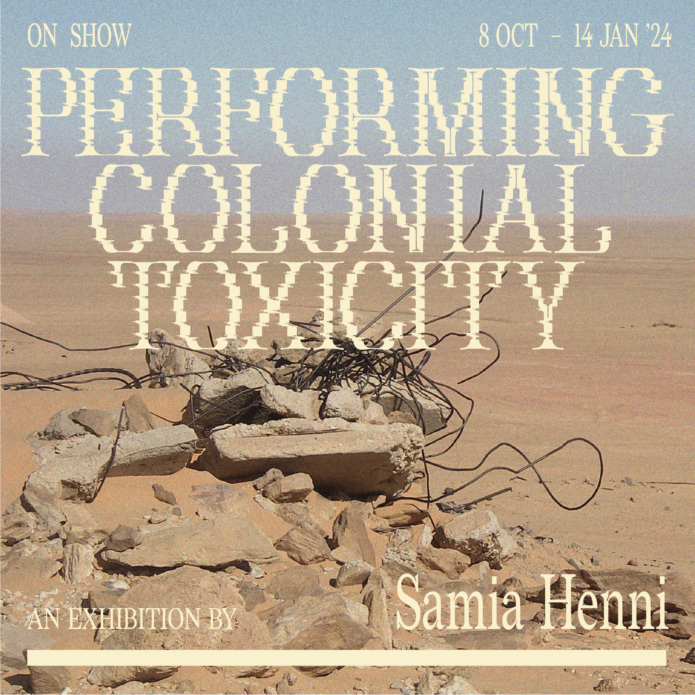
Expositie: Performing Colonial Toxicity
Een tentoonstelling van onderzoeker en architectuurhistorica Samia Henni, in samenwerking met If I Can’t Dance, I Don’t Want To Be Part Of Your Revolution
Agenda
Performing Colonial Toxicity: The Testimony Translation Project
Rondleiding over de vertalingen van de getuigenissen
Opening: Performing Colonial Toxicity
Een tentoonstelling van onderzoeker Samia Henni over de verborgen geschiedenis van het Franse nucleaire kolonialisme in de Algerijnse Sahara
Magazine
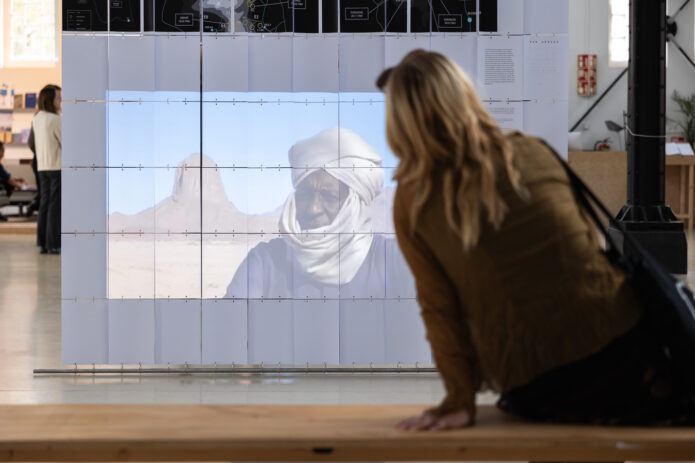
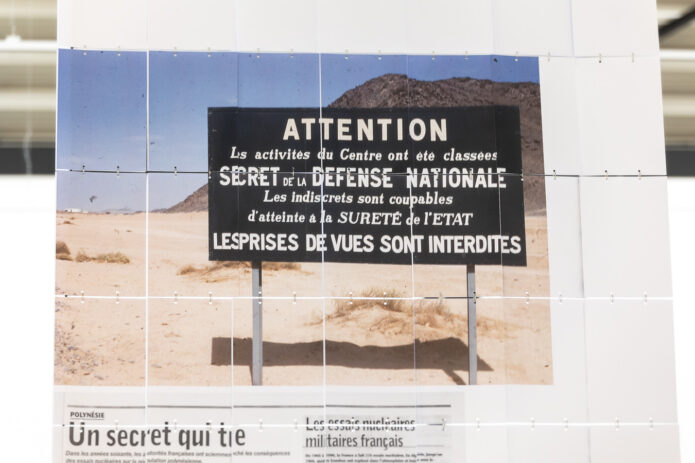
Performing Colonial Toxicity reist naar Zürich, Londen en Parijs
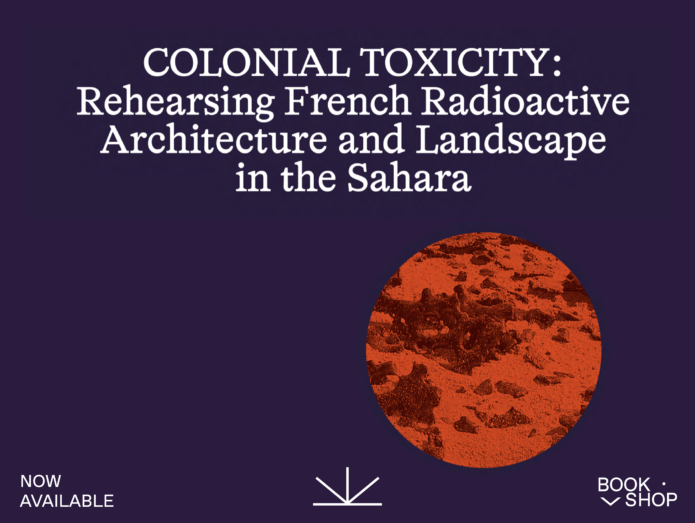
Boekwinkel selectie: Colonial Toxicity door Samia Henni
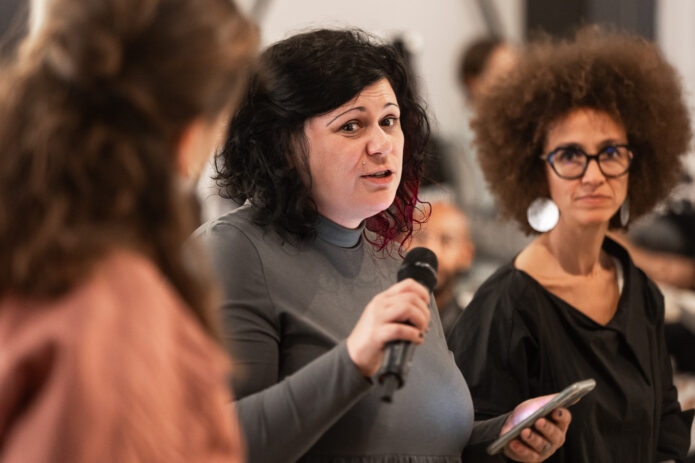
Video: Megan Hoetger in gesprek met Samia Henni
